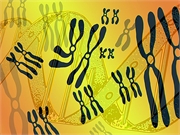Strongest association seen for participants without a first-degree family history of colorectal cancer
THURSDAY, Dec. 26, 2019 (HealthDay News) — A polygenic risk score (PRS), developed from 95 colorectal cancer (CRC)-associated genetic risk variants, is more strongly associated with early- than late-onset cancer, especially in the absence of family history, according to a study published online Dec. 19 in Gastroenterology.
Alexi N. Archambault, M.P.H., from the New York University School of Medicine in New York City, and colleagues examined whether a PRS correlated with the risk for early-onset CRC in 12,197 participants aged younger than 50 years versus 95,865 participants aged 50 years or older. The findings were replicated in 72,573 participants in an independent cohort.
The researchers found that for early-onset cancer, the overall associations with CRC per standard deviation of PRS were significant and were stronger than late-onset cancer. Comparing the higher versus the lowest PRS quartile, risk increased 3.7-fold and 2.9-fold for early- and late-onset CRC, respectively. Participants without a first-degree family history of CRC had the strongest association. Comparing the highest with the lowest quartiles in this group, risk increased 4.3-fold versus 2.9-fold for early- versus late-onset CRC.
“The PRS may contribute, along with lifestyle and environmental risk profiling, toward prioritizing individuals at increased susceptibility to early-onset CRC for personalized screening regimens or other intervention strategies,” the authors write. “By selecting high-risk individuals <50 years of age, we can reduce the burden on early detection programs and potentially provide more individualized prevention approaches."
One author was employed by Genentech.
Copyright © 2019 HealthDay. All rights reserved.








